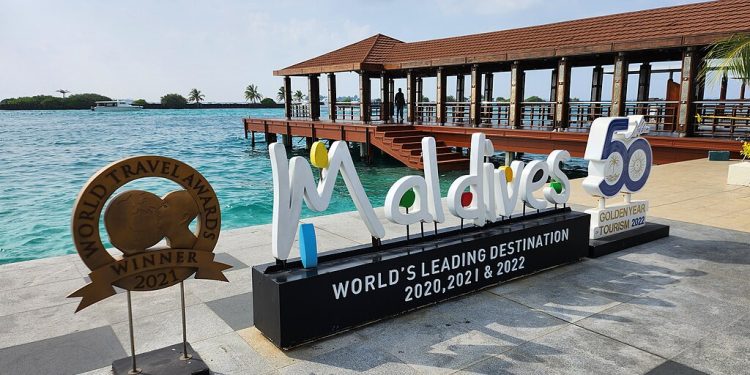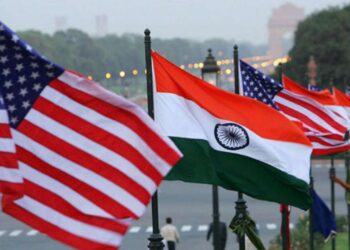The strained bilateral relations between the Maldives and India, which have deteriorated significantly in recent weeks, took a further hit as Male officially requested Delhi to remove its troops from the island nation by March 15th.
The request was communicated during the inaugural meeting of a high-level core group between the two countries, which took place on Sunday in the Maldivian capital, Male.
This comes in the wake of a prolonged dispute that unfolded on various social media platforms, intensifying against the backdrop of the ongoing power struggle between India and China in the Indian Ocean.
“Indian military personnel cannot stay in the Maldives. That’s the policy of this administration,” Abdulla Nazim Ibrahim, the public policy secretary in President Mohamed Muizzu’s office, said.
India, a prominent regional power, has maintained a presence of approximately 80 military personnel, vessels, and aircraft in the Maldives for surveillance and rescue operations over the years. Tensions have arisen in the relationship between India and the Maldives since Mohamed Muizzu assumed the presidency in November, following a heated election campaign during which he pledged to expel India if he emerged victorious.
On Sunday, Delhi announced that officials from both countries engaged in discussions aimed at identifying mutually feasible solutions to ensure the ongoing operation of Indian aviation platforms providing humanitarian aid and medical evacuation services to the people of Maldives.
However, the statement from the Indian foreign ministry did not specify any timeline for the withdrawal of Indian soldiers from the islands.
The meeting between Maldives and India occurred just after Mr. Muizzu’s return from a state visit to China, where he held discussions with President Xi Jinping and other high-ranking officials. Beijing and Male agreed to elevate their relations to a comprehensive strategic cooperative partnership.
Prior to Mr. Muizzu’s visit, a diplomatic dispute unfolded between India and Maldives when three Maldivian deputy ministers made disparaging remarks about Indian Prime Minister Narendra Modi on social media. In response to the public outcry, the three ministers were subsequently suspended.
However, Mr. Muizzu adopted a defiant tone during a press conference upon his return from Beijing. He declared the Maldives’ intention to diversify its food imports and overseas healthcare services, seemingly aiming to diminish the country’s reliance on India.
Mr. Muizzu unveiled plans to import food from Turkey and medicines from Europe and the US. Additionally, he announced that Maldivians eligible under a state health insurance scheme could seek treatment in Dubai and Thailand, diverting from the current trend where most people travel to India and Sri Lanka.
“We are not a country that is in the backyard of another country. We are an independent nation,” Mr Muizzu’s said, adding: “We may be small, but that doesn’t give you the licence to bully us.”
Maldivian analysts point out that Mr. Muizzu is adopting a firm position against Delhi due to his awareness that Islamist hardliners, particularly the ultra-conservative Salafis, within the country endorse his approach towards India.
This recent dispute poses a challenge for Delhi, coinciding with a period where proponents of the Indian government have been showcasing its “assertive foreign policy” and India’s rise as a significant economic and military force.
Despite this, India’s Foreign Minister S. Jaishankar maintained a measured response to the ongoing diplomatic tensions with Male.
“Politics is politics. I cannot guarantee that in every country, every day, everybody will support us or agree with us,” he is reported to have said in Nagpur on Sunday.











